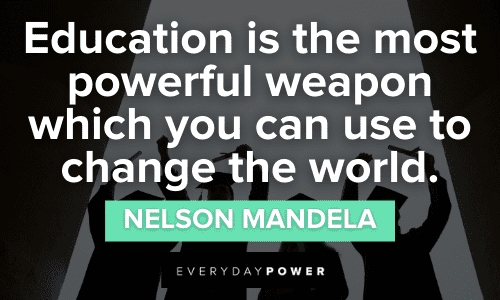There are 4 words that have the same essential effect: evangelization, marketing, education and change.
Check out these definitions:
Evangelization: To promulgate or promote a doctrine or idea, for example, enthusiastically.
Marketing: The commercial processes involved in promoting and selling/distributing a product or service.
Education: The act or process of imparting or acquiring general knowledge and of developing the powers of reasoning and judgment.
Change: A transformation or transition from one state, condition, or phase to another.
Even though the definitions are not the same, there is an element of change involved, and a process, whether or not perceived, which occurs.
The goal of evangelization is to change someone’s particular mindset and/or faith to embrace another set of beliefs; the goal of marketing is to change a particular mindset about a product or service to an openness to find out more about that particular product or service; the goal of education is to change the mindset of the learner through the exposure of new information about a subject. They all require some type of change to happen in the mind of an individual, and even though they have an element of logical (cognitive) alteration, they all start with an emotional (affective) instance.
For educators, change must be in their DNA. Their students change every year. The courses they teach change, sometimes every semester. Sometimes, a course may be offered every other year, and when the time comes to teach it again, it may need to be significantly revised to include new relevant material, discard outdated data, and possibly introduce new methods or technology to deliver content in a new way to attract more students. Some teachers change schools during the week, working in as many as 4 or 5 schools, even 6 if the school is on a 6-day cycle and there are 6 elementary schools in the school system. They may have to substitute for another teacher instead of utilizing their planning period for that day, and, if they teach classes at the local college at night, shift gears from the pedagogy necessary to teach children to then focus on adrogogical techniques and strategies to engage the adult learner.
Of course, when a student enters the classroom, a change needs to happen in that student before they leave the classroom, or else learning has not taken place.
With all this change happening all around them, for a teacher to say that they dislike change seems oxymoronic. Teachers are agents of change, and are actually very good at making change happen. The key is to involve teachers in the transformation process. Because they are so adept at developing strategies and constructs to make learning possible, they are that much more apt to object to change that they simply experience, rather than actively participating in the transition’s planning and implementation.
To say that teachers don’t like change may be a significantly incorrect generalization, since education is all about change. Teachers are great at making change happen. It’s what they do on a daily basis, creating environments to foster learning, and finding ways to ignite that spark of the “aha moment” in their students which ties the emotional and logical response together. Therefore, involve and engage teachers in transformative initiatives, rather than keeping them on the sidelines, telling them how they’re going to have to change. Give them a voice and role, and watch some great things happen.
